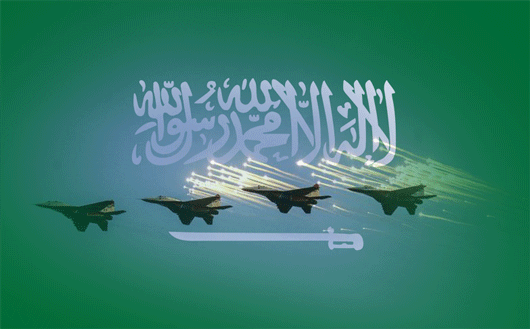
By Tony Iltis
French President Francois Hollande awarded his country’s most prestigious award, the Legion of Honour, to Saudi Crown Prince Mohammed bin Nayef on March 4 for "countering extremism and fighting terrorism," the Saudi Press Agency reported.
That the Saudi Kingdom’s human rights abuses closely resemble that of the extremists and terrorists it is supposedly fighting is well known. Public beheadings and displaying decapitated corpses is the penalty for infringement of puritanical moral codes, political opposition, ordinary crimes and less ordinary crimes like witchcraft.
Bombing Yemen
However, much less reported than Saudi links with terrorism and domestic repression, but considerably more violent, is its war on Yemen. A Saudi-led coalition, mainly members of the Gulf Cooperation Council (GCC), began its campaign of air strikes against the fellow Arab nation on March 26 last year.
The bombing campaign was launched in an attempt to reverse the overthrow of the Yemeni government by an ... alliance led by the Houthi Ansarullah movement. The air strikes have been combined with ground operations by GCC special forces.
The UN Office of the High Commissioner for Human Rights reported on March 4 that 3081 civilians had been killed in Yemen. Associated Press said on March 10 that the overall military and civilian body count was at least 6200. Press TV said on March 9 that it was more than 8400, including more than 2200 children.
Starvation and preventable diseases are adding to the toll due to damage to infrastructure caused by air strikes and a Saudi blockade on most of Yemen, which is outside the control of the Saudis’ Yemeni allies.
On February 5, the UN Office for the Coordination of Humanitarian Affairs (OCHA) received a diplomatic note from Saudi Arabia saying "all the international organizations working in Yemen" needed to relocate "away from regions where the Houthi militias and the groups belonging to them are activating". Vice News reported on February 12 that the note said employees’ safety could not be guaranteed if they remained.
Vice News said: "Houthi rebels and their allies loyal to former President Ali Abdullah Saleh control areas where the majority of Yemen’s population lives, including the capital Sanaa, where most aid organisations and UN operations are head-quartered ...
"OCHA has reported that more than 21 million people in Yemen require some form of humanitarian assistance. That’s most of the country of 24 million."
Air strikes by the Saudi-led coalition have caused the majority of civilian deaths. On October 26, the Saudi-led coalition bombed a Doctors Without Borders (MSF) clinic. MSF had already condemned the targeting of hospitals on July 30, TeleSUR English said.
West’s role
These air strikes are carried out with aircraft and munitions supplied by the West. The Saudi Kingdom has long been a major customer of Western powers. Since the war on Yemen started, the West has stepped up arms sales to resupply Saudi Arabia and its allies.
A February 26 Amnesty International statement said Saudi Arabia received more than US$25 billion worth of arms last year, with the US the largest supplier. British exports of military equipment to Saudi Arabia between January 1 and September 30 last year were worth $4.16 billion.
Particularly devastating have been US-supplied cluster bombs. The US and Saudi Arabia have refused to sign the 2008 Convention on Cluster Munitions, which most Western countries have endorsed. Cluster bombs explode in the air dispersing smaller bombs, or bomblets, to cause simultaneous explosions over a wide area of ground.
Some bomblets fail to detonate, meaning they can kill long after the initial attack. Children are particularly vulnerable to unexploded bomblets.
Australia is involved in the war against Yemen as an exporter of mercenary officers. On December 9, the Guardianreported that an Australian was killed leading a group of between seven and 14 mostly Colombian mercanaries.
The Guardian said they were working for the private US mercenary corporation Blackwater. However, while Blackwater was linked to their recruitment, the mercenaries were actually fighting as part of the armed forces of the United Arab Emirates (UAE).
Just as the UAE’s economy is dependent on highly paid Western expatriates in the professional and managerial sectors, and a predominantly low-paid migrant workforce from Third World countries, so is the UAE’s military. The December 26 Middle East Eye reported a high proportion of Australians serving as UAE military officers and Colombians in the rank-and-file.
Mike Hindmarsh, the commander of the UAE’s elite Presidential Guard special forces unit, is a former commander of Australian Special Forces and was the commander of Australian forces in the Middle East from 2008.
"In October 2009 it was announced that the Australian government had approved Hindmarsh’s retirement from the army to take up a new role commanding the UAE Presidential Guard," Middle East Eye said.
Saudi Arabia’s role as a major regional diplomatic military enforcer for the West became significant after the 1979 Islamic... revolution overthrew the pro-West monarchical regime that had previously fulfilled the role.
Sources: Green Left, Edited by Website Team